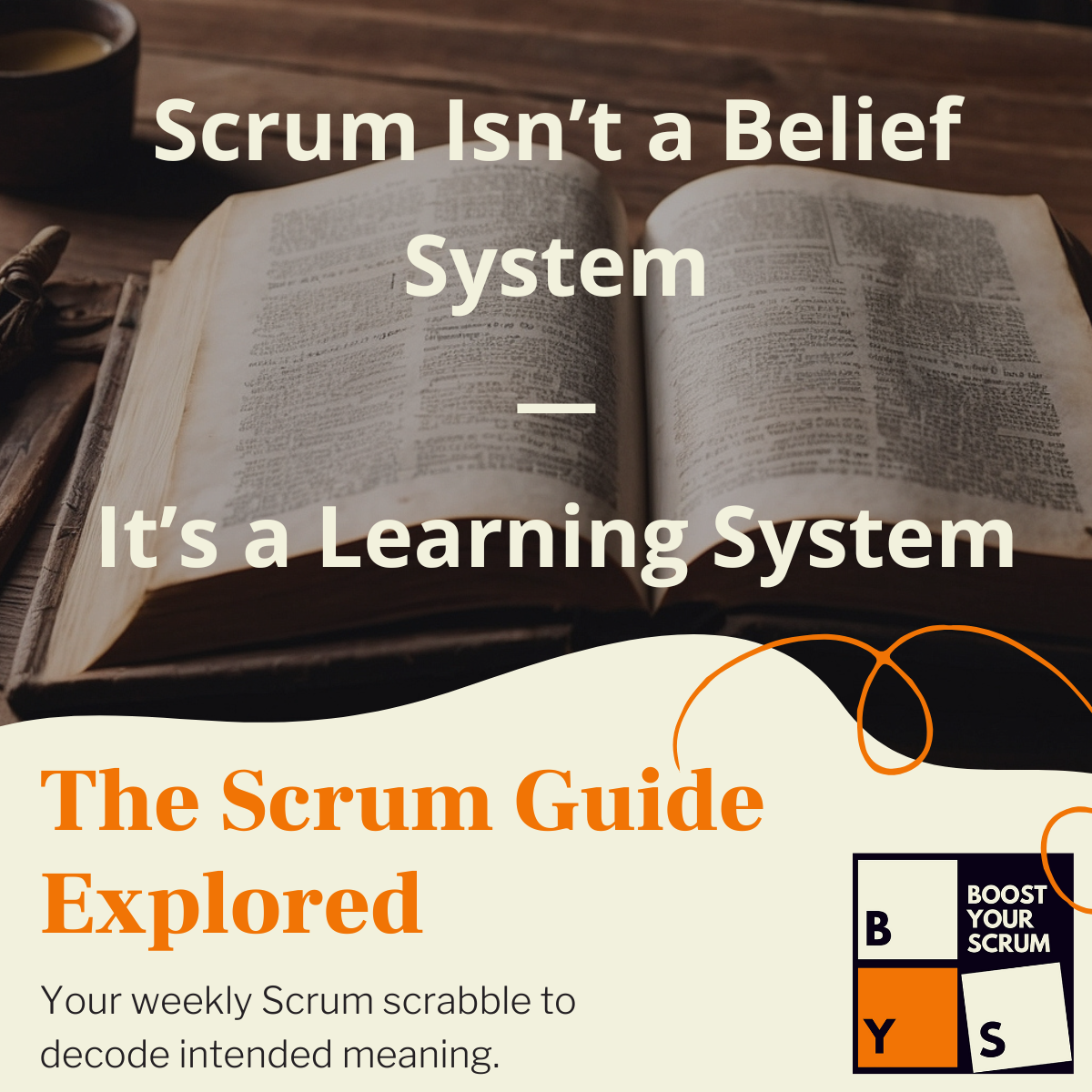What are you basing your decisions on? Evidence or wishful thinking?
The Scrum Guide says:
“Scrum is founded on empiricism...”
But what does that actually mean?
From Cambridge Dictionary:
Empirical: “based on what is experienced or seen rather than on theory.”
Experienced: “having skill or knowledge because you have done something many times.”
Key words:
Experienced — been part of something that happened
Seen — observed something that happened
Done something — yes it did happen, you made it happen.
That’s it.
Empiricism means:
You’ve seen something happen or you’ve done something, and
You’ve learned from it.
Scrum Teams believe that it is better to take action and learn from the results, building up experience, collecting data and evidence in order to grow and to improve their decision making—not endless theorising, analysis paralysis, or planning the perfect future.
Empiricism means making decisions based on what is, not what we hope. Not assumptions, not gut-feelings, not traditions.
Some common anti-patterns I see:
- Estimating without checking actual throughput
- Planning long-term without inspecting increments or adapting the plan
- Teams afraid to inspect because results aren’t pretty
- Stakeholders avoiding releasing or even Sprint Reviews “until it’s polished”
A better approach:
- Assume less. Observe more.
- Don’t polish a fantasy. Ship reality.
- Accept what the mirror shows—even if it’s uncomfortable.
I’ve seen leaders try to “change the mirror” by silencing feedback or removing messengers (yes, I’ve been one…). Guess what? The problems didn’t go away. The learning just stopped.
Time to reflect:
- Where in your Scrum implementation are you still guessing instead of inspecting?
- When did your team last adapt based on something real?
- What evidence are your decisions actually based on?
Scrum isn't a belief system. It's a learning system—rooted in reality, not fantasy.
And empiricism is your compass.
So how are you using empiricism in your team?
I’d love to hear your thoughts in the comments below!
I hope you find value in these short articles and if you are looking for more clarifications, feel free to make contact.
Don't want to miss any of these blog posts? Have the “The Scrum Guide Explored” series weekly in your mailbox.
Wishing you an inspiring read and a wonderful journey.
Scrum on!

